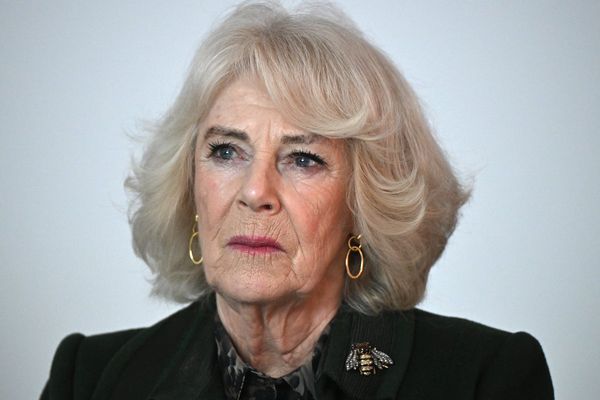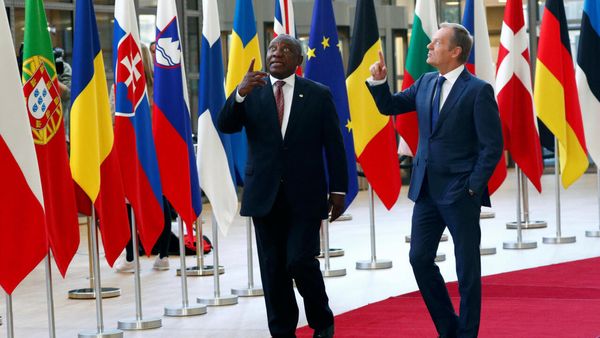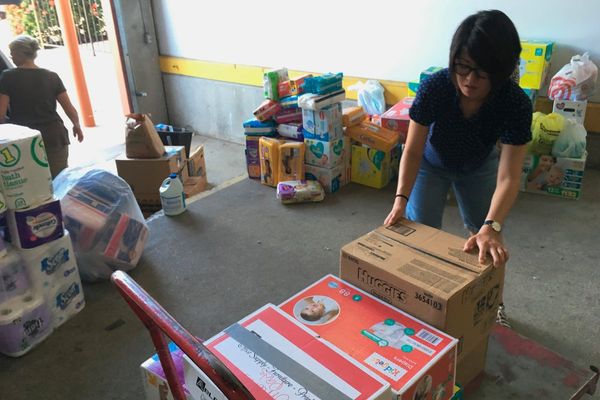
When fighting erupted in May between pro-democracy armed groups and the military in Demoso township in Myanmar’s Karenni state (also known as Kayah), Khu Bue Reh* had to leave his village with his wife and five-year-old son.
They hid in the dense forest, their only shelter a tarpaulin, surviving on what little food they had carried with them.
Two months after they left, Khu Bue Reh’s son, who had previously suffered from seizures, suddenly lost the ability to speak, sit up or eat solid food.
With no one to turn to in the forest, the family embarked on a desperate journey through a heavily militarised area to take their son to a doctor in the state capital, Loikaw. Months later, with their son in hospital, they became trapped as the city came under a barrage of airstrikes and artillery fire.
Khu Bue Reh’s family are just one among hundreds of thousands who are bearing the brunt of the rapidly growing humanitarian crisis across Myanmar.
In response to rising armed resistance to its power, the military has targeted entire civilian populations with airstrikes, artillery shelling, arson and indiscriminate gunfire. More than 300,000 people across the country have become displaced since the coup, forced to abandon their homes and their livelihoods.
Before the coup, Karenni, located on Myanmar’s south-eastern border with Thailand, had not seen active conflict over the past decade. Now it has become one of the country’s strongest new fronts of resistance.
The military’s relentless attacks have displaced about 150,000 people across the state, or roughly half of its population, according to the Karenni Human Rights Group.
Most of the displaced people are sheltering in mountainous and forested areas where they have extremely limited access to basic necessities. Civilians seeking to return to their village to fetch food and other supplies have been killed by the military.
The military has also blocked lifesaving aid to displaced populations across the country and attacked humanitarian workers, leaving displaced people desperate for basic food, shelter and healthcare.
The humanitarian and security situation in Karenni continues to deteriorate. On Christmas Eve in Hpruso township, the military massacred at least 35 civilians, including women, children and aid workers, and burned them in their vehicles. Fighting between the military and armed resistance groups has intensified since then, causing further displacement.
In the last week of January, the bodies of eight civilians, including women and children, were found in two villages near Loikaw; some showed signs of torture, according to a Radio Free Asia report.

The Guardian spoke to displaced people and volunteer nurses in Demoso in the last week of December. They say that medical care is only available for minor illnesses and there are shortages of medicine.
“We are falling sick,” says one displaced person, “but we cannot visit a clinic.”
In Loikaw, Khu Bue Reh’s son spent more than a month in the hospital after doctors found he had suffered a stroke. He has since been readmitted several times, leaving the family with more than 1,500,000 kyats (£630) in medical bills.
These costs create a huge financial burden for him and his wife, who are rice farmers. Although they managed to plant their crop, they could not harvest it during the fighting.
“I spent all my savings, and I still need to buy medicine and nutritious drinks for my son,” Khu Bue Reh told the Guardian in early January from Loikaw. “I cannot go home.”
On 15 January, the 500-bed hospital where the family’s son was being treated was shut down and all the patients evacuated. Health workers told a local news site, the Kantarawaddy Times, that the fighting and the electricity blackouts in Loikaw had left the hospital unable to continue operating.
Khu Bue Reh and his family are further from home than ever. He says his son has been relocated to a hospital 150 km north, in Shan state; he and his wife are now living in a displacement camp nearby.
*Name has been changed to protect his identity
Khu Peh Bue is the news editor of the Kantarawaddy Times, a Karenni state-based news media outlet. He is based on the Thailand-Myanmar border and is writing under a pseudonym for security reasons.
Translated by Nu Nu Lusan; additional editing by Emily Fishbein







